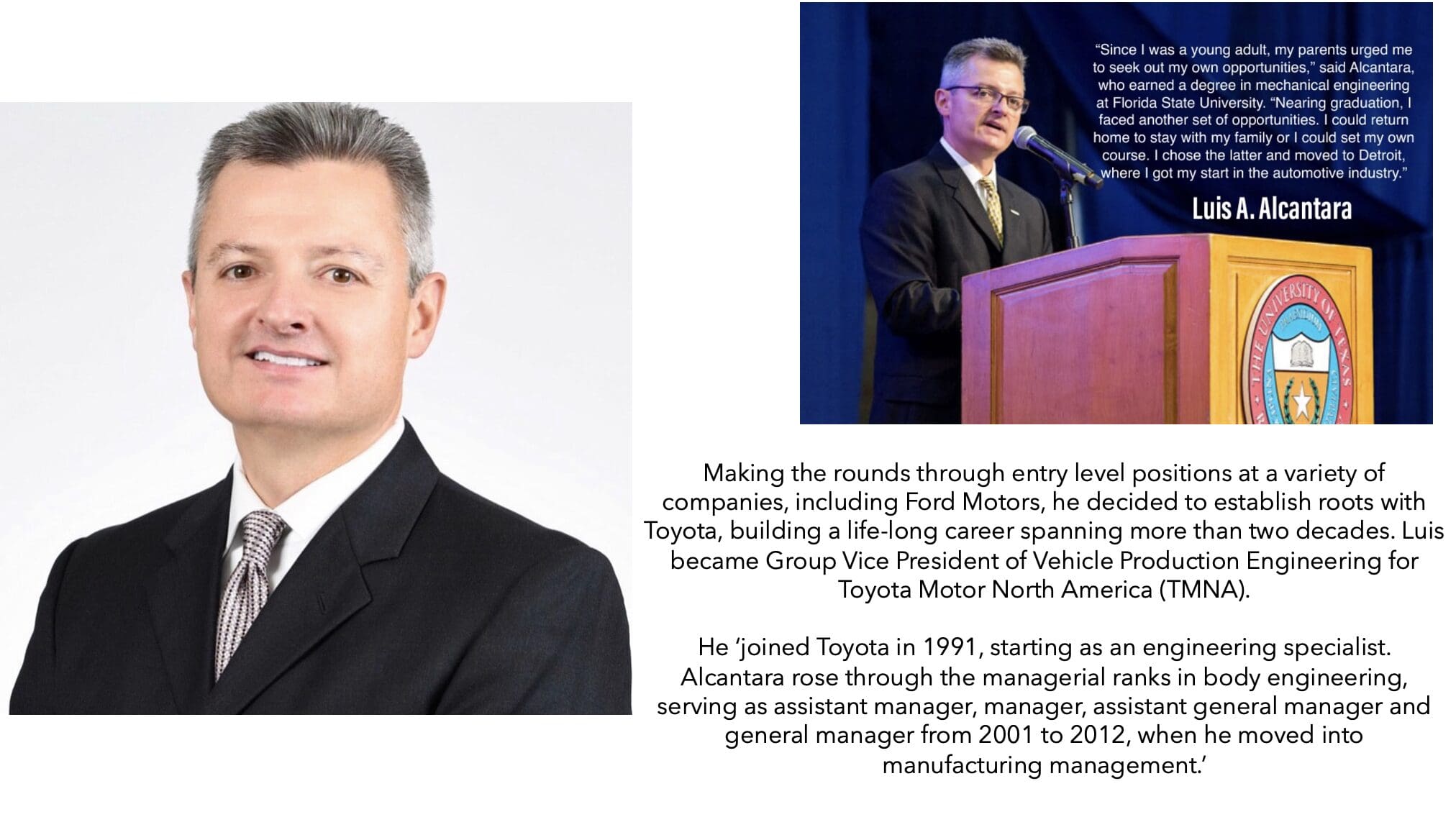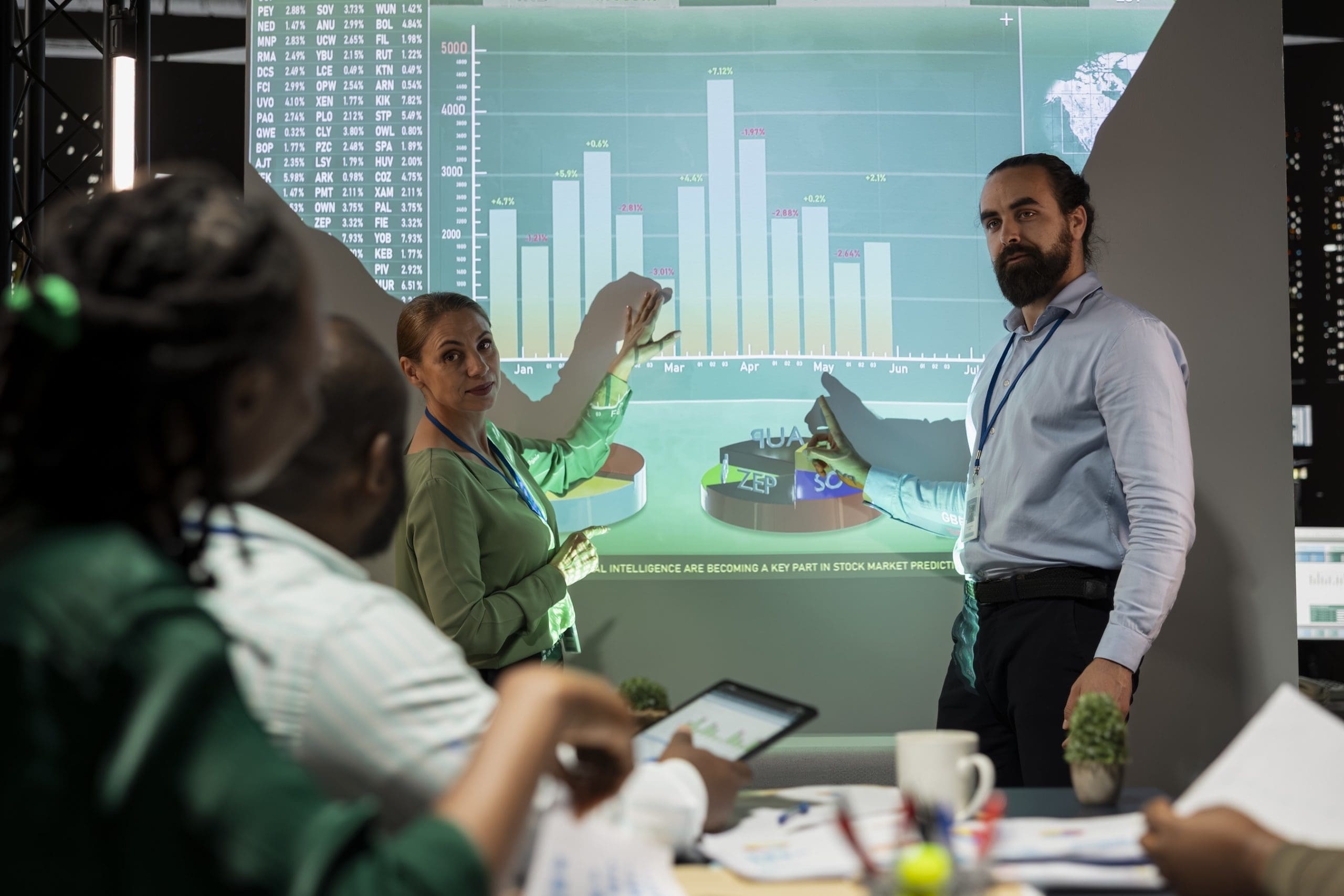Latino Leadership: Luis Alcántara Impact in STEM [Video]

Inspiring the next generation: Luis Alcántara’s commitment to STEM mentorship
I recently had the opportunity to chat with Gabriela Alcántara-Díaz, Founder and President of Semilla Multicultural, a creative agency based in Miami, whose strategy is to celebrate upward mobility and diversity to cultivate brand growth. Gaby is also an occasional contributor at Latin Biz Today.
Our conversation centered on how leaders achieve success, particularly in engineering and business. Leaders need humility and resilience, to complement strong problem-solving skills. Multicultural experiences are also key in business contexts. We also touched on the legacy of Gaby’s brother Luis, who served as an inspiration to many aspiring engineers.
The STEM talent gap in the US workforce is needed to fuel talent pipeline
The US workforce depends now more than ever on expertise in science, technology, engineering, and mathematics (STEM). STEM expertise is essential in traditional STEM fields but many skills associated with STEM disciplines are required throughout the job market. In every sector, we need people skilled in data-driven decision making, computational thinking, technological adaptability, and other such abilities that come from the study and application of STEM disciplines. So it’s no surprise that STEM and STEM-adjacent jobs have grown significantly in the past decade and are expected to continue to grow faster than jobs in other sectors. Also, STEM jobs are attractive because they have significantly higher wages than non-STEM jobs.
However, Hispanic participation in the STEM workforce remains disproportionately low: Hispanics comprise only 9.5% of science and engineering professionals despite representing over 18% of the total US workforce. This significant underrepresentation creates a talent gap in the industries that are driving economic growth and innovation, industries in desperate need of more talent to fill important roles.
Multiple factors contribute to this disparity, including unequal access to quality STEM education, financial barriers to higher education, and obstacles within recruitment pipelines. The critical factor we explore in this post is the scarcity of Hispanic professionals in established and high-level STEM positions, which creates a self-perpetuating cycle where young Hispanic students lack visible role models who share their cultural background and experiences, making it difficult for them to envision themselves succeeding in these fields.
From Uruguay to Toyota VP: The story of Luis Alcántara
There are inspiring exceptions to this concerning trend, individuals who demonstrate how to overcome barriers through determination and perseverance. This is the story of Luis Alcántara, whose remarkable journey showcases Latino achievement in STEM and serves as an important reminder to all of us to give back and mentor those who come after us.
Born in Uruguay and arriving in Miami at age four, Luis was raised by parents who sought the American Dream for their family. His path led Luis through Florida State University’s mechanical engineering program, a foundation that would later support his rise through one of the world’s leading automotive companies, Toyota. Like many first-generation immigrants in technical fields, Luis worked his way through educational and professional contexts with limited access to mentors who shared his cultural background or understood his unique context. Instead, he relied on his exceptional determination and intellectual gifts to forge ahead.
Luis had a 28-year career at Toyota Motor North America, work that stands as testament to what talent can achieve when given opportunity. Starting as an engineering specialist in 1991, Luis steadily climbed through the ranks of body engineering, from assistant manager to his final position as Group Vice President of Vehicle Production Engineering. In this role, he shouldered immense responsibility, overseeing new vehicle introductions across Toyota’s North American assembly plants and leading a team of more than 800 professionals. His work touched every aspect of production, from process planning and equipment procurement to construction, installation, and safety protocols. With each promotion, Luis forged not just personal achievement but solidly demonstrated what is possible for Latinos to accomplish in corporate America.
Inspiring the next generation: Luis Alcántara’s commitment to STEM mentorship
Beyond his professional accomplishments, Luis had great impact through his dedication to creating pathways for others. Selected to serve on the United States Hispanic Chamber of Commerce board of directors, he positioned himself to influence policies affecting over 4.4 million Hispanic-owned businesses. In addition, he was a staunch supporter of engineering programs at institutions like Florida State University and the University of Kentucky, and his numerous addresses and lectures at student events demonstrated his commitment to widening the pipeline of Latino talent in STEM. “Champion yourself, take risks, volunteer,” he advised young people in one of his addresses, offering the mentorship he himself had limited access to.
Luis passed away in 2019, from complications related to cancer. Though his time with us was cut short, his influence lives on, not just in the professional world, but in the countless lives he touched and inspired. Luis’s accomplishments shed light both on the tremendous potential of Latino professionals in STEM and on the clear need for more structured mentorship, to systematically provide guidance, connections, and inspiration for future STEM leaders, as Luis was able to offer through his personal initiative.
How can you make a commitment to mentoring?
Luis Alcántara’s legacy challenges us to create systems where exceptional stories like his become increasingly common.
If you don’t know where to start, join an organization like iMentor (if you’re based in New York City, Chicago, or Baltimore) or Mentor (which has a broad network throughout the US, and also offers e-mentoring). These organizations provide orientations to their mentors and support them with resources and guidance, as well as connect mentors to mentees based on expertise and interests.
Also consider connecting with your alma mater or a local college or university, to find out if they have a mentoring program or other ways to volunteer with students. You might also consider taking in interns from your local college or university. Mentoring and volunteering opportunities, and other ways to connect with the talent of a college’s student body, are usually housed in the career office or in alumni affairs.

Gaby’s advice to Latino entrepreneurs is powerful:
- Consider multilingualism and multicultural experience as valuable assets when evaluating job candidates.
- Look beyond traditional credentials and consider work experience, global perspective, and soft skills when you assess multicultural candidates.
- Job seekers from diverse backgrounds should ensure that they “package” themselves (in presentation and communication approach) in a way that aligns with market expectations while also highlighting their unique experiences and skills.
- Entrepreneurs need to leverage multicultural insights and experiences to develop innovative business strategies and products.
- Business leaders need to re-evaluate hiring practices to improve access to diverse talent and create more inclusive workplaces.
Gabriela Alcántara-Díaz provides a powerful roadmap for both employers and job seekers navigating today’s complex business landscape. Embracing Gaby’s principled approach is sure to benefit individual careers as well as strengthen the fabric of the business community, creating a more dynamic and representative environment for all.
Related content:
Dedication to Dr. Les “Coach” Fernandez
Did You Know…One of the Original “Madmen” Is an Inspirational Latino?
Dan Guerrero — Helping Pixar Get Coco’s Culture Just Right








